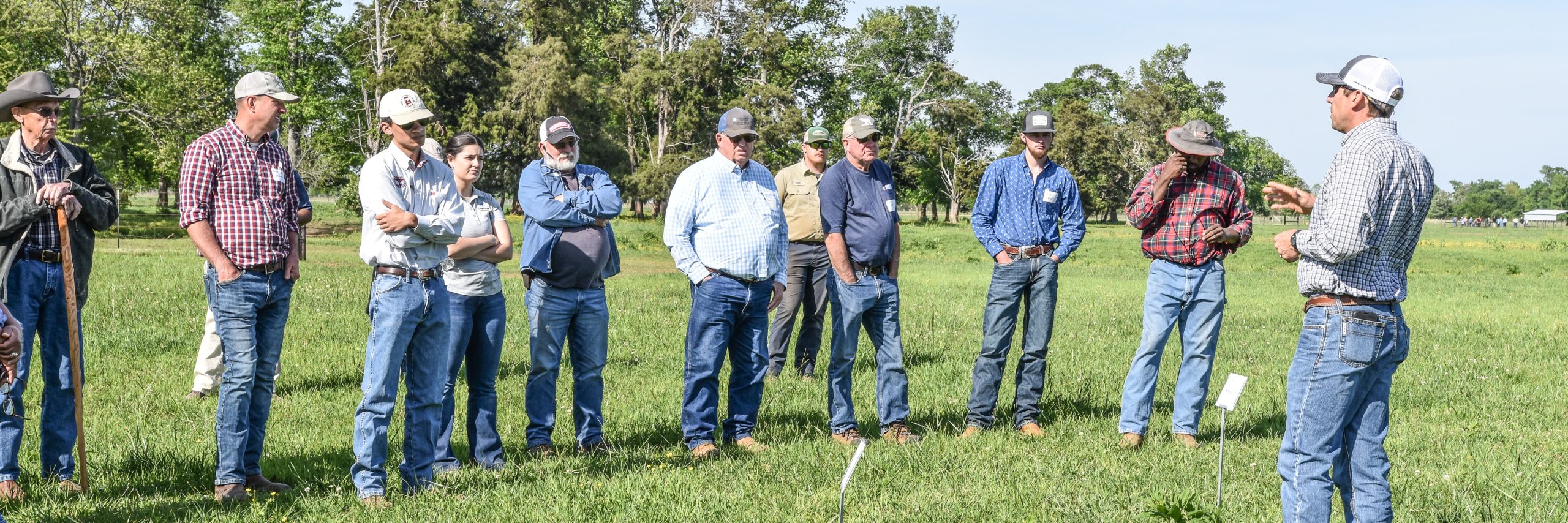EXTENSION
Philosophy:
The central role of teaching through Extension is to educate individuals, enabling them to make informed decisions to improve their livelihoods, families, and communities. My goal is to emphasize the process of experiential learning, which connects the educator’s intentional action and knowledge with the learner’s prior experiences. Understanding the audience and their ideas is crucial for addressing their needs with research-based knowledge. I believe learning is most effectively facilitated and knowledge retained when the teaching experience is meaningful and relevant. Practically, outreach and education are conducted through various outlets such as producer field days, on-site demonstrations, one-on-one consultations, publications, social media, and partnerships with numerous organizations.
Program Overview:
Persistent weed species threaten agricultural productivity by reducing crop quality and yields across various systems, including livestock, forage, soybean, small grains, and corn. Integrated weed management strategies are crucial to effectively tackle these issues, combining herbicides, mechanical methods, cultural practices, and preventative measures tailored to diverse agricultural needs. Since 2019, I have led an effort to put together a science-based team to ensure that our grain crop farmers, forage producers, and state and local departments of transportation reach their full potential in vegetation management while also enhancing the local ecosystems. This multi-disciplinary team and statewide programming is called “Weed Management Strategies for Alabama Cropping Systems”.
The primary objectives of Weed Management Strategies for Alabama Cropping Systems are:
- Educate and Support: Educate agricultural stakeholders through practical demonstrations and research-based practices.
- Stakeholder Collaboration: Identify and collaborate with key stakeholders and early adopters within communities.
- Promote Adoption: Encourage the adoption of integrated weed management practices to improve profitability and sustainability.
- Enhance Profitability: Support economic viability through technology adoption and improved agricultural practices.


